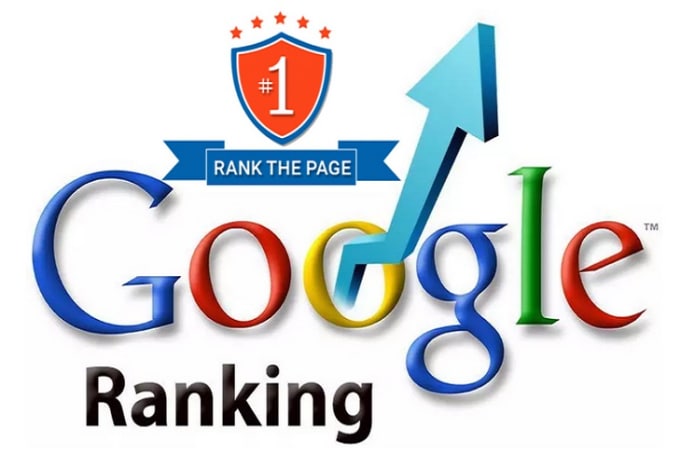How to know Google ranking of my website is one of the most searched questions by business owners, digital marketers, and website developers. Understanding your Google ranking is crucial because it directly impacts your website traffic, online visibility, and potential conversions. In this guide, we will explore every aspect of checking Google ranking, tools to use, methods, and strategies to improve your position on search engine results pages (SERPs).
Why Knowing Your Google Ranking is Important
Knowing your Google ranking helps you understand how your website performs in organic search results. Here are some reasons why tracking your website ranking on Google matters:
- Website Traffic Insight: Websites appearing on the first page of Google receive the majority of clicks. Knowing your ranking helps estimate potential traffic.
- SEO Strategy Optimization: Tracking rankings reveals which keywords drive traffic and which need improvement.
- Competitor Analysis: Knowing your ranking allows you to compare performance with competitors and identify opportunities.
- Revenue Generation: Higher rankings often correlate with better leads, sales, and revenue.
By regularly checking your search engine ranking, you can optimize content, improve user experience, and increase authority in your niche.
Understanding Google Ranking
Knowing how to know google ranking of my website is essential because Google ranking is determined by complex algorithms that evaluate various factors such as relevance, quality of content, user experience, backlinks, and website authority. Higher ranking websites appear at the top of SERPs for specific keywords.
Key Factors That Influence Google Ranking
- High-Quality Content: Websites with informative, unique, and relevant content rank higher.
- Keyword Optimization: Using high-search-volume keywords naturally within your content improves rankings.
- Backlinks: Quality backlinks from authoritative sites increase domain authority.
- User Experience (UX): Fast-loading, mobile-friendly websites with easy navigation rank better.
- Technical SEO: Proper meta tags, sitemap, robots.txt, and structured data influence ranking.
- Engagement Metrics: Low bounce rate and high dwell time signal Google that your content is valuable.
How to Know Google Ranking of My Website: Step-by-Step Methods
There are multiple ways to check your website’s Google ranking. Some are free, while others require paid tools. Below, we outline the most effective methods:
1. Manual Google Search
The simplest method to check your website ranking on Google is through a manual search:
- Open Google in incognito mode to avoid personalized results.
- Enter your target keyword in the search bar.
- Scroll through results to find your website position.
Pros: Free and straightforward.
Cons: Time-consuming for multiple keywords; results may vary due to location or search history.
2. Google Search Console
Google Search Console is a free tool provided by Google to monitor your website’s performance:
- Go to Google Search Console and verify your website.
- Navigate to the Performance Report.
- View the average position for each keyword.
- Analyze clicks, impressions, CTR, and ranking trends over time.
Pros: Direct data from Google, free, detailed analytics.
Cons: Only shows average ranking, may not reflect exact positions for all searches.
3. SEO Tools for Checking Google Ranking
Several SEO tools can track your website ranking for multiple keywords efficiently:
a) SEMrush
- Provides accurate keyword position tracking.
- Offers competitor analysis.
- Shows ranking trends and suggested keywords.
b) Ahrefs
- Check keyword ranking for your domain.
- Analyze competitors’ ranking keywords.
- Provides SERP analysis and backlink insights.
c) Moz Pro
- Tracks search engine rankings daily.
- Offers keyword difficulty scores.
- Reports on SEO metrics and website optimization.
d) Ubersuggest
- Free and paid version available.
- Tracks ranking for multiple keywords.
- Provides traffic estimates and keyword suggestions.
Pros of Using SEO Tools: Efficient for multiple keywords, competitor insights, detailed analytics.
Cons: Paid plans can be expensive for small businesses.
4. Rank Tracking Software
Dedicated rank tracking software helps monitor your Google ranking automatically:
- SERPWatcher by Mangools
- AccuRanker
- ProRankTracker
These tools allow you to:
- Track ranking daily.
- Analyze keyword movement.
- Generate SEO reports for clients.
5. Browser Extensions
Several browser extensions can help quickly check your website ranking:
- SEOquake: Shows ranking metrics for the website directly in SERPs.
- MozBar: Displays page authority, domain authority, and ranking information.
These tools are suitable for quick checks without logging into full-fledged SEO software.
High-Search-Volume Keywords to Track Your Ranking
When tracking your Google ranking, focus on keywords that bring maximum traffic. Some high-search-volume keyword examples include:
- how to check website ranking on Google
- Google ranking checker tool
- SEO keyword ranking
- track website position in Google
- best free Google ranking tools
- monitor website ranking daily
Incorporating these keywords in your content increases chances of higher visibility and attracting organic traffic.
How to Improve Your Google Ranking
Knowing your Google ranking is only the first step. To climb higher in SERPs, you need actionable strategies:
1. Optimize On-Page SEO
- Use primary keywords in title tags, headings, and meta descriptions.
- Include LSI keywords and high-search-volume keywords naturally.
- Ensure proper internal linking and URL structure.
2. Improve Website Speed
Google considers page speed a ranking factor. Tools like Google PageSpeed Insights help identify improvements.
3. Mobile-Friendly Design
A responsive, mobile-optimized website ranks better. Mobile usability affects Google ranking directly.
4. Create High-Quality Content
- Publish informative, original, and engaging content regularly.
- Use multimedia like images, infographics, and videos.
- Focus on solving user queries to increase dwell time.
5. Build Quality Backlinks
- Reach out to authoritative websites for guest posts.
- Engage in PR campaigns and influencer collaborations.
- Ensure backlinks are from relevant and high-authority sites.
6. Monitor User Engagement Metrics
- Improve click-through rate (CTR) by optimizing meta descriptions and titles.
- Reduce bounce rate through better UX and relevant content.
- Increase dwell time by providing comprehensive, engaging articles.
7. Regularly Audit Your Website
SEO audits help identify:
- Broken links
- Duplicate content
- Slow pages
- Technical SEO issues
Tools like Screaming Frog SEO Spider and Ahrefs Site Audit provide detailed insights.
Common Mistakes to Avoid While Checking Google Ranking
- Relying Only on Manual Search: Personalized results can mislead your position.
- Ignoring Mobile Ranking: Mobile-first indexing requires tracking mobile rankings.
- Tracking Too Few Keywords: Focus on all relevant high-search-volume keywords.
- Not Analyzing Competitors: Competitor insight is crucial for improving rankings.
- Neglecting Local SEO: For local businesses, ignoring Google My Business ranking can reduce visibility.
Advanced Tips to Track Google Ranking Effectively
1. Track Keyword Groups
Group similar keywords and track their collective performance to analyze which topic clusters perform best.
2. Use Localized Search Tracking
Google rankings differ by location. Use tools to check ranking by city or country to get precise insights.
3. Track SERP Features
Rankings in featured snippets, knowledge panels, and local packs significantly increase clicks.
4. Monitor Keyword Trends
Some keywords fluctuate seasonally. Use Google Trends and SEO tools to track popularity shifts.
5. Set Up Alerts for Ranking Changes
Tools like SEMrush and Ahrefs allow notifications when keyword positions change, helping take timely action.
Conclusion: Mastering Google Ranking Tracking
Knowing how to know Google ranking of my website is essential for any online business or digital marketer. Regular tracking helps identify opportunities, optimize SEO strategies, and improve overall website performance.
By using AI-powered tools like Google Search Console, SEMrush, Ahrefs, and Moz Pro, combined with proper SEO techniques, you can not only monitor but also improve your website ranking consistently
Remember, SEO is a long-term strategy. Continuously analyzing rankings, updating content, and building authority are key to staying ahead in the SERPs.
Tracking the Google ranking of your website is the first step toward increasing visibility, driving organic traffic, and boosting conversions. Focus on high-search-volume keywords, user experience, and quality content to climb higher on Google’s first page.






